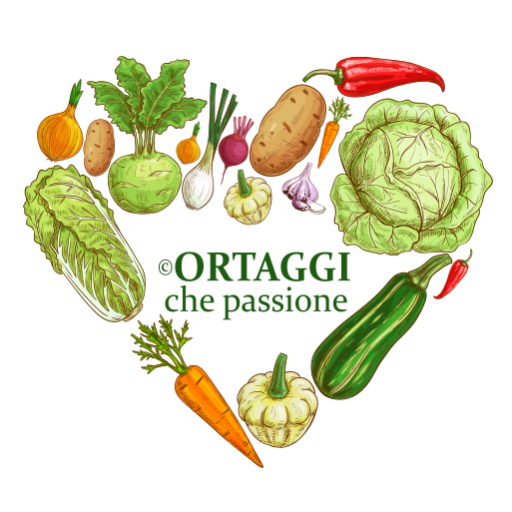The combination of turmeric and honey can be a powerful natural antibiotic and antibacterial for a sore throat, cough, and cold. This synergy between two ingredients rich in beneficial properties offers not only immediate relief but also an effective response to respiratory tract infections and against seasonal ailments, flu, and even COVID, boosting the immune system and fighting off the attack of viruses and bacteria. Let’s discover how this simple yet powerful mixture can become your ally in the fight against a sore throat, a natural approach to your well-being.
BENEFITS
Honey is rich in antioxidants, is an ally for the immune system, helps prevent diseases, and promotes healing. Its antibacterial properties make it an effective remedy for soothing irritated throat mucous membranes, making it an excellent natural cough suppressant, while also improving sleep quality.
Turmeric is rich in curcumin, a powerful antioxidant, and has shown anti-inflammatory properties. It can help counteract conditions like arthritis, promotes heart health, regulates blood pressure, and can be an ally in managing diabetes.
By combining the antibiotic power of honey with the anti-inflammatory properties of turmeric, bacteria causing the most common illnesses are destroyed, and the body’s natural defenses are also enhanced. Unlike common synthetic antibiotics, this natural remedy does not have any negative effects on the intestinal microflora. The consumption of turmeric and honey significantly improves digestion and increases intestinal flora activity.
RECIPES with turmeric
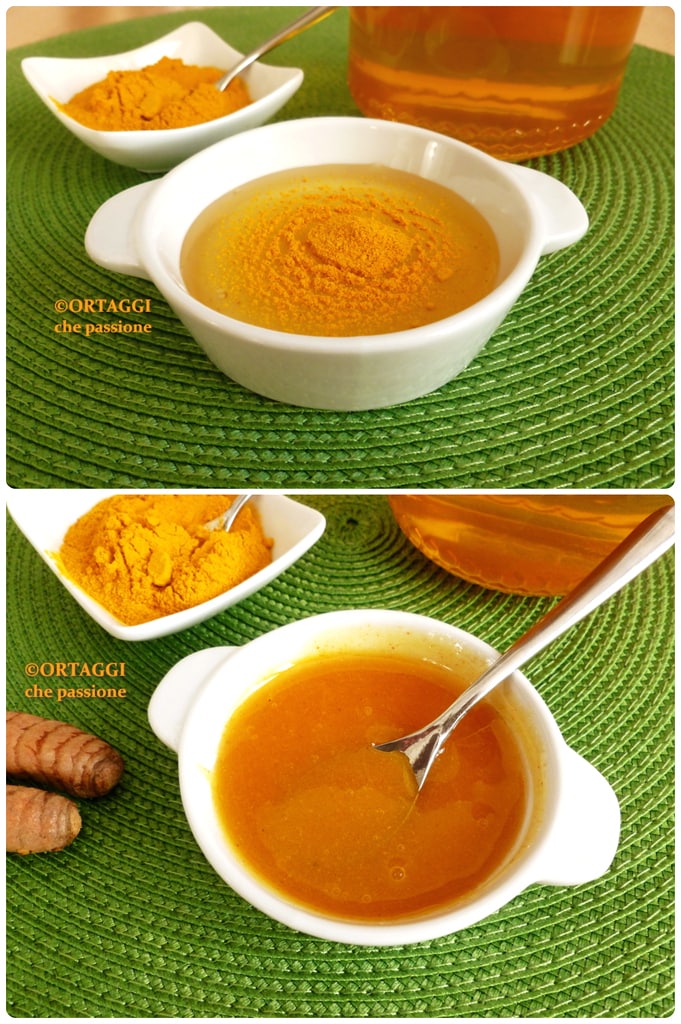
- Difficulty: Easy
- Cost: Affordable
- Preparation time: 2 Minutes
- Portions: yields 4 teaspoons
- Cooking methods: No cooking
- Cuisine: Wellness
- Seasonality: All seasons
- Energy 28.59 (Kcal)
- Carbohydrates 6.02 (g) of which sugars 5.44 (g)
- Proteins 0.13 (g)
- Fat 0.66 (g) of which saturated 0.11 (g)of which unsaturated 0.01 (g)
- Fibers 0.21 (g)
- Sodium 0.97 (mg)
Indicative values for a portion of 9 g processed in an automated way starting from the nutritional information available on the CREA* and FoodData Central** databases. It is not food and / or nutritional advice.
* CREATES Food and Nutrition Research Center: https://www.crea.gov.it/alimenti-e-nutrizione https://www.alimentinutrizione.it ** U.S. Department of Agriculture, Agricultural Research Service. FoodData Central, 2019. https://fdc.nal.usda.gov
DOSES – Turmeric and honey
powerful remedy for a sore throat
- 1 oz honey
- 1 tsp fresh turmeric (about 3 grams – dried loses most of the curcumin)
- 1 pinch black pepper (makes the active ingredient of turmeric available)
- Half tsp extra virgin olive oil (or rice oil or seed oil)
As an alternative to turmeric, but with a less targeted effect, cinnamon can be used.
Adding fresh ginger (one-third the amount of turmeric) enhances its power.
Turmeric and honey
Gently heat and mix the honey to make it fluid, then blend in the turmeric (and ginger if available) and preferred oil.
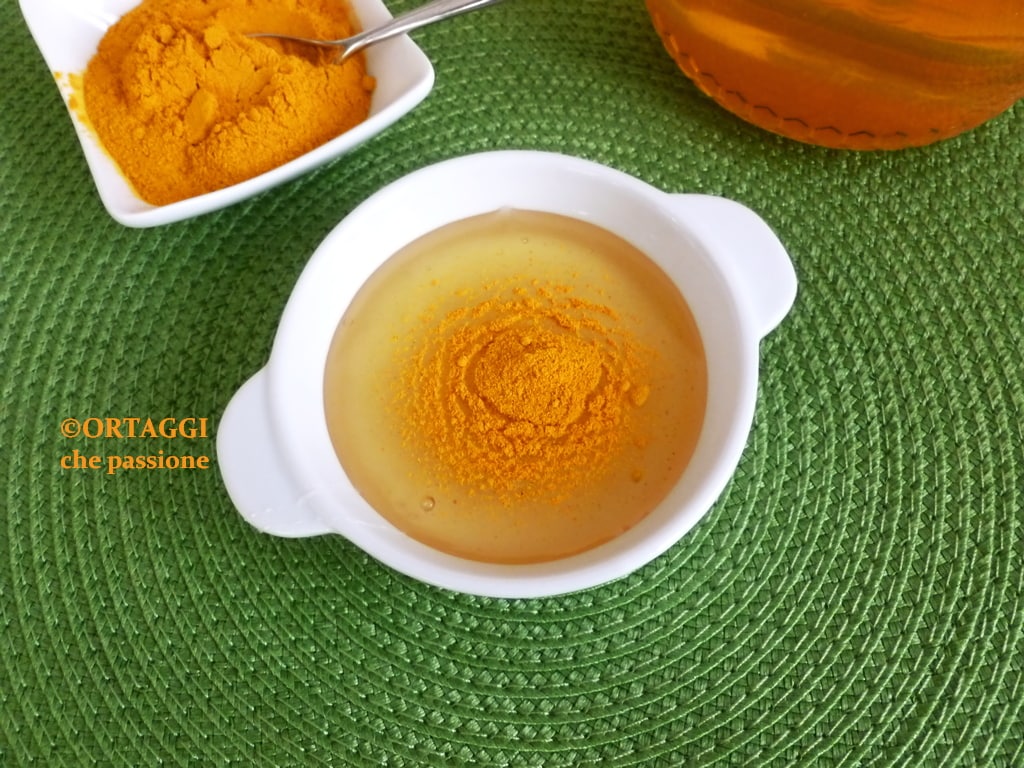
Pour the syrup obtained into a clean glass jar, close it and store it in the refrigerator.
When needed, take a teaspoon: dissolve it in your mouth, or in hot water (tea, herbal tea, or milk are also fine) that is not boiling to avoid ‘killing’ the honey. Alternatively, it can be added to yogurt or kefir.
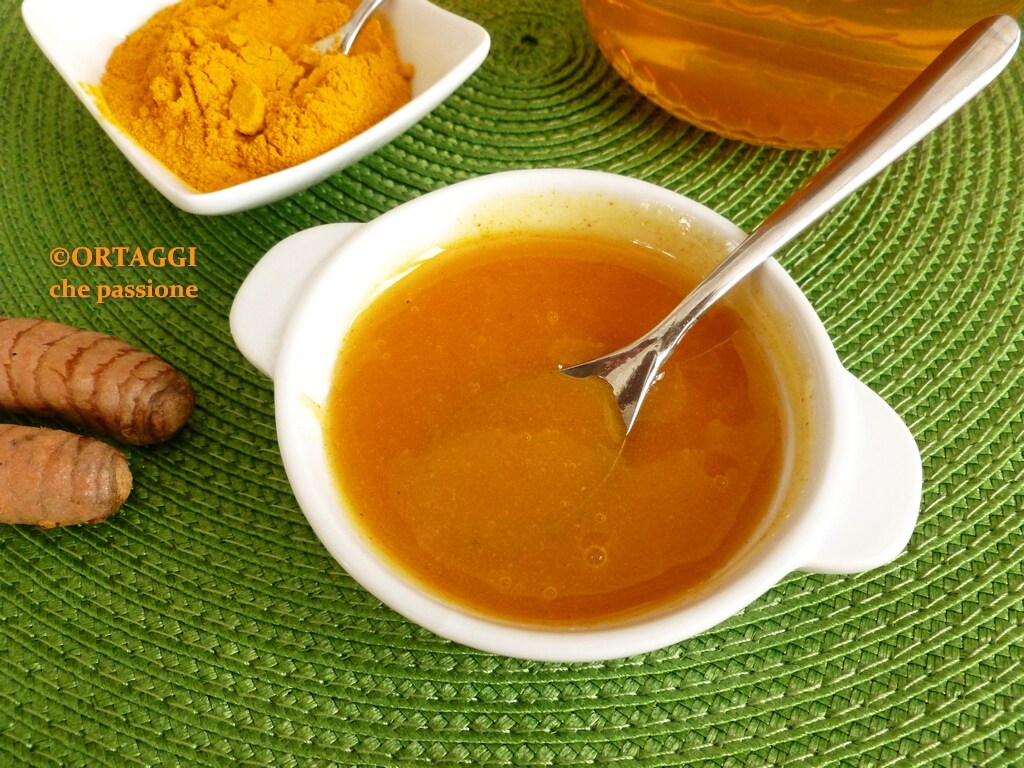
DAILY DOSE
At the first signs of a sore throat or other cold-related illnesses (headache, muscle aches, fatigue), prepare this mixture and store it in the refrigerator.
First day: half a teaspoon every hour.
Second day: half a teaspoon every two hours.
Third day: half a teaspoon only three times a day.
When using, add a grind of black pepper (piperine, a substance contained in pepper, increases the bioavailability of curcumin, the active ingredient of turmeric). Pepper facilitates the absorption of turmeric’s properties. Adding a good quality extra virgin olive oil (as a healthy fat) also helps the solubility of curcumin.
Also beneficial is the addition of a generous squeeze of lemon or orange.
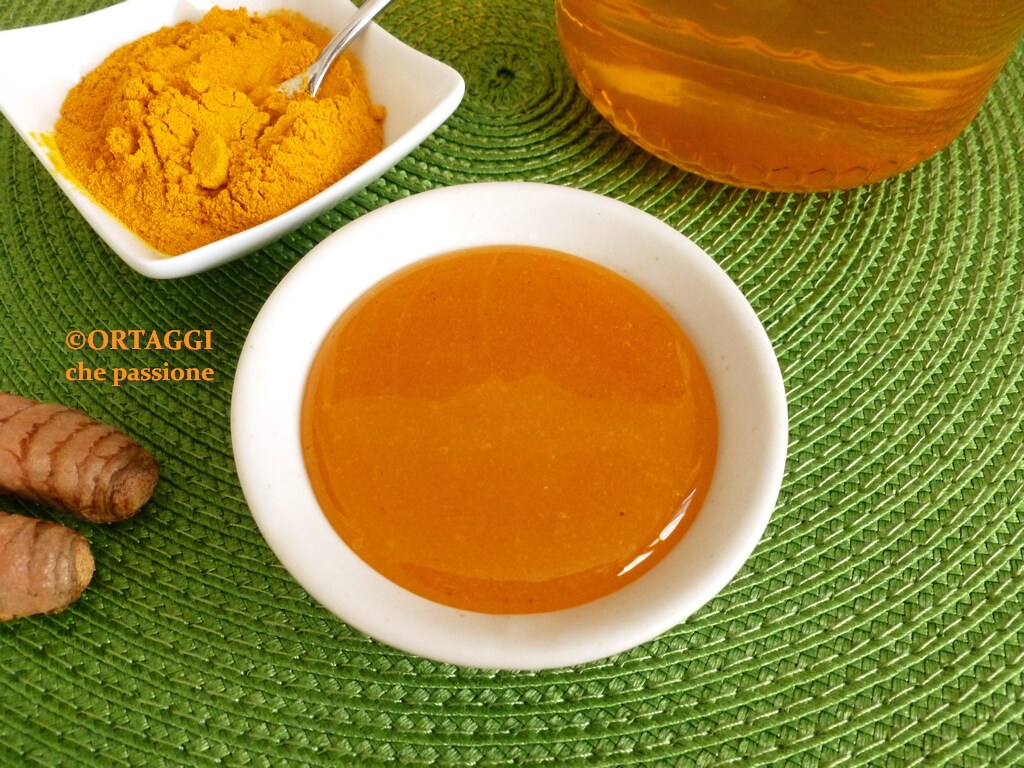
Contraindications
In some cases, excessive use of turmeric may cause gastrointestinal disturbances or interact with certain medications, so it’s advisable to consult a healthcare professional before integrating it into your diet, especially in large quantities. Turmeric thins the blood and lowers blood pressure, take care if you suffer from diabetes. Also, it should not be taken in cases of liver diseases or bile duct issues. The use of turmeric is not recommended for children under 3 years old.
Regarding honey, it should be avoided in children under the age of one due to the risk of infant botulism. Additionally, those allergic to pollen may experience allergic reactions to honey consumption. As always, it’s crucial to pay attention to individual health conditions and consult a doctor or dietitian before making significant changes to your diet or use of natural remedies.
FAQ (Questions and Answers)
Are turmeric and honey useful for weight loss?
Turmeric and honey are often considered healthy ingredients, but there is no concrete evidence linking them directly to weight loss. While turmeric offers antioxidant and anti-inflammatory properties, honey is a natural energy source. Integrating them into the diet can be beneficial, but it’s essential to maintain an appropriate caloric balance and adopt a healthy lifestyle, including a balanced diet and physical activity.
What is the best natural anti-inflammatory?
The best natural anti-inflammatory can vary from person to person, but many sources indicate turmeric as one of the most promising options. Curcumin, its active ingredient, has shown anti-inflammatory properties. Other foods like ginger, olive oil, and red fruits are also known for their potential anti-inflammatory properties.
What is the best way to take turmeric?
Turmeric is best absorbed by the body when consumed with black pepper and healthy fats (like extra virgin olive oil), as black pepper contains piperine, which improves absorption, while fats aid its solubility. It can be added to cooked dishes, drinks like golden milk, or supplements.

